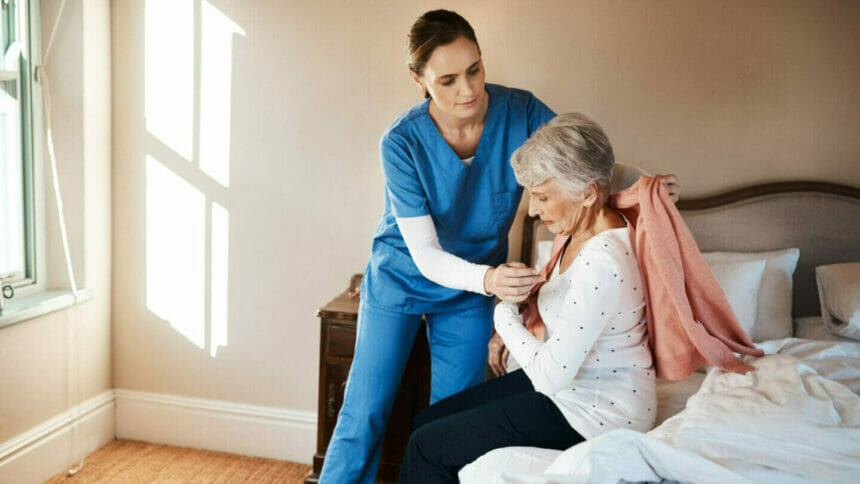
A provider organization in Texas is educating residents, families and the general public about the relative safety of senior living communities and nursing homes during the COVID-19 pandemic after a public official recommended people move their loved ones out of such settings.
Dallas County Judge Clay Jenkins made the remark Sunday after several cases of the disease, including one death, have been reported among residents and staff of senior living and continuing care retirement communities and skilled nursing facilities.
“What I am saying is, if you bring your loved one home, it’s safer than leaving them in the nursing home, if you can,” Jenkins said, according to the Dallas Morning News. The judge said he moved his mother from her independent living community approximately three weeks ago and she now is living in his home, the media outlet reported.
LeadingAge Texas President and CEO George Linial, CAE, told McKnight’s Senior Living that he was surprised by the judge’s words. The organization is advising residents to stay put.
“Our communities are laser-focused on ensuring the safety and well-being of their residents and their employees,” Linial said. “Abruptly removing a family member can have a negative result. People considering moving their loved ones home should understand that for some residents, the trauma of relocating, lack of available services, clinical support and infection control measures can pose a much greater risk.”
Families who move their loved ones home to live with them also may need to screen home health workers to determine whether they have been exposed to COVID-19 elsewhere, Linial said. “Then let’s say that they spend a week or two away and then the family realizes they can’t take care of them, then getting them back into the facility is another issue in itself, and those residents have to be quarantined and a whole process is put in place that makes other residents at risk,” he added.
Linial said LeadingAge Texas appreciates some of the points made by the judge in an order issued Sunday for long-term care facilities. That order prohibits nonessential visitors unless they are providing critical assistance or visiting a resident at the end of life and specifies what communities must do to notify others when a case of COVID-19 is discovered.
The National Center for Assisted Living said that although families want to do what is best for their loved ones, moving someone out of an assisted living community or nursing home “could really be doing your loved one more harm than good” due to the risk of the virus in the greater community and the fact that younger individuals do not always show symptoms.
“For assisted living residents specifically, while the [Centers for Disease Control and Prevention] does not recommend moving residents, that’s something that family members need to work out with their loved one’s community. Every assisted living resident is different, so they may be a bit more independent than nursing home residents,” NCAL said in a statement to McKnight’s Senior Living. “But usually, if they came to assisted living, it’s because they had needs that could not be met in the home. Also, for assisted living residents living with dementia, taking them out of their routine is very disruptive to their health and well-being.”
NCAL was one of 34 associations and long-term care providers collaborating with the Alzheimer’s Association on guidance for assisted living and memory care communities, nursing homes and other providers amid the coronavirus crisis. That guidance was released Monday.
Other coronavirus-related news of interest:
- The Labor Department has excluded senior living communities and nursing homes from the Families First Coronavirus Response Act’s paid leave requirement.
- Malaria drugs have been approved for COVID-19 use; Affinity Living Group’s chief medical officer warns of side effects in the elderly.
- The Centers for Medicare and Medicaid Services announced Monday that it is expanding access to telehealth services for Medicare beneficiaries and now will pay for more than 80 additional services when furnished via telehealth. “This means they can receive care where they are: at home or in a nursing or assisted living facility,” the agency said. “If they have COVID-19, they can remain in isolation and prevent spread the virus. If they aren’t infected, they can get care without risking exposure to others who may be ill.”
- Newsday examines how the coronavirus started and spread throughout a New York continuing care retirement community.
- Battelle has received FDA authorization for sterilization technology that can clean 80,000 respirator masks per day.



